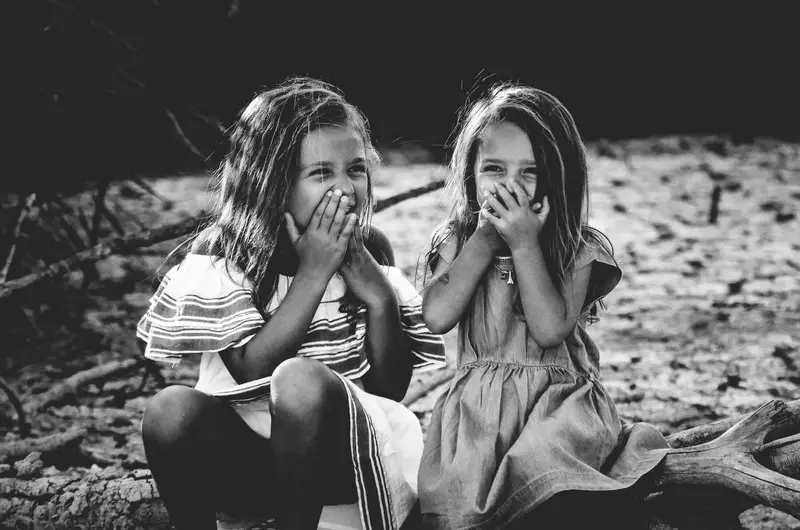Table of Contents
- The Social Construction of Childhood
- The Role of Family and Social Institutions
- The Diverse Experiences of Childhood
- Childhood in the Context of Globalization
- Childhood, Rights, and Policy
- Conclusion
Childhood, a seemingly universal experience, varies significantly across societies, historical periods, and cultural contexts. Within sociology, the study of childhood examines the unique social position children hold and how broader social structures shape their lives and experiences. Childhood is far from a fixed biological stage; instead, it is a social construct that reflects cultural values, economic structures, and historical transformations. This article will explore the sociological understanding of childhood, unpacking its social construction, the role of family and institutions, and the varied experiences of childhood based on class, gender, and ethnicity.
The Social Construction of Childhood
Defining Childhood as a Social Construct
In sociological terms, childhood is understood not merely as a biological phase of growth and dependency but as a socially constructed stage. This concept of social construction implies that childhood is not universal; rather, it is created and shaped by social norms, cultural expectations, and historical forces. Different societies define childhood uniquely, establishing diverse rules and expectations for children. For example, what is considered appropriate behavior, responsibilities, and autonomy varies between cultures, and the age at which individuals transition out of childhood differs widely.
Historical Perspectives on Childhood
The perception of childhood has changed significantly over time. In medieval Europe, for example, children were often seen as “miniature adults” and were quickly integrated into adult roles and responsibilities. It wasn’t until the Industrial Revolution that the idea of childhood as a protected and distinct phase of life emerged in Western societies. This shift coincided with legal reforms restricting child labor, mandating schooling, and viewing children as emotionally and developmentally distinct from adults.
In contemporary sociology, this historical perspective emphasizes that childhood is fluid, reflecting the broader social, economic, and political climate. By understanding these shifts, we see how childhood adapts to and is shaped by societal priorities, such as the emphasis on formal education or the degree of protection children receive in different societies.
The Role of Family and Social Institutions
Family as the Primary Agent of Socialization
The family is the primary social institution shaping childhood. From a sociological standpoint, family serves as the first site of socialization, where children learn language, norms, and values that will guide their interactions and perceptions. Through family dynamics, children learn their role within society and begin to understand the boundaries and expectations associated with age, gender, and social class.
Families provide not only physical care and emotional support but also cultural capital—skills, knowledge, and dispositions that vary significantly by socioeconomic status. Children from families with access to greater economic and cultural resources may be exposed to more learning opportunities and varied experiences. Sociologists argue that such differences in familial resources and structures influence a child’s social trajectory, academic achievement, and future opportunities.
The Role of Educational Institutions
Education is another critical institution shaping childhood. Schools not only impart academic knowledge but also play a role in secondary socialization, teaching children norms, values, and behaviors expected in broader society. Educational settings are often where children first encounter social hierarchies, rules, and routines beyond the family unit. Here, they interact with peers, teachers, and authority figures who further shape their identities and sense of self.
Sociologists have explored how educational institutions reproduce social inequalities through processes like tracking, which channels students into different educational paths based on perceived ability, often reflecting socioeconomic background rather than inherent ability. This process reinforces social stratification, showing how childhood experiences in school are closely linked to broader patterns of inequality.
Media and Childhood
Media, too, plays an influential role in modern childhood. Sociologists have examined the impact of media consumption on children, noting that media serves as a powerful agent of socialization. Through television, the internet, and social media, children are exposed to cultural narratives, values, and ideals that influence their understanding of identity, success, and social norms. Concerns around children’s media exposure often focus on issues such as consumerism, body image, and violence, demonstrating how media shapes childhood experiences and perceptions of self and others.
The Diverse Experiences of Childhood
Childhood and Social Class
Social class significantly affects the experience of childhood. Working-class children, for example, may encounter different expectations, challenges, and opportunities than their middle- or upper-class peers. Sociologists have documented how working-class families often emphasize obedience and respect for authority, while middle-class families may prioritize autonomy and critical thinking. This difference in parenting style is linked to the kinds of jobs parents hold and their broader social and economic environment.
Economic disparities also influence access to resources such as quality education, healthcare, and extracurricular activities, impacting children’s developmental experiences and future life chances. The “concerted cultivation” model of middle-class parenting—characterized by structured activities and active parental involvement—is often contrasted with the “accomplishment of natural growth” approach seen in working-class families, where children are given more independence and less structured oversight.
Gendered Experiences of Childhood
Gender shapes childhood in both overt and subtle ways. From a young age, children learn gender norms that dictate what is considered appropriate behavior for boys and girls. These expectations are often reinforced through family interactions, educational environments, and media representations. For instance, girls may be encouraged to engage in nurturing play, while boys are directed toward activities that emphasize physical strength and competition.
In addition to these social expectations, sociologists note that gender can influence children’s opportunities and constraints. For example, girls may be encouraged to pursue academic achievements in fields like the humanities, while boys may be directed toward science and technology. The internalization of these norms can impact a child’s self-esteem, interests, and sense of identity, shaping their aspirations and future paths.
The Impact of Ethnicity and Race on Childhood
Ethnic and racial backgrounds also significantly influence children’s experiences. Children from minority ethnic groups often face unique challenges, including experiences of discrimination, stereotyping, and marginalization. These experiences can affect their sense of identity and belonging, as well as their academic performance and social relationships. Racial and ethnic minority children may also navigate bicultural identities, balancing the cultural values and expectations of their family and community with those of the broader society.
In societies with a history of racial inequality, children from different racial backgrounds may have unequal access to educational resources, healthcare, and safe neighborhoods. Such disparities reveal how childhood is not only shaped by immediate family and cultural contexts but also by larger systemic issues, such as institutionalized racism and social exclusion.
Childhood in the Context of Globalization
Get the full article AD FREE. Join now for full access to all premium articles.
View Plans & Subscribe Already a member? Log in.






